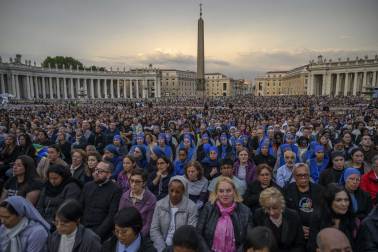What does it mean to say ‘never again’? It is etched into memorials, inscribed in textbooks, whispered in the shadows of history’s darkest hour. It is a phrase uttered by world leaders at solemn ceremonies, by teachers guiding young minds through the horrors of the past, by those who stand in Auschwitz, tracing their fingers over the cold, cracked walls of the barracks. It is repeated so often that it risks becoming just that – a repetition.
Is it a promise? A warning? A plea? A moral incantation to ward off the unthinkable? For some, ‘never again’ means that Jews will never again be led to slaughter – that the gas chambers, the mass graves, the methodical machinery of annihilation will never be allowed to return. For others, it is a broader appeal: that genocide itself must never again be permitted, that humanity must learn, must evolve, must overcome its worst instincts.

Get Britain's best politics newsletters
Register to get The Spectator's insight and opinion straight to your inbox. You can then read two free articles each week.
Already a subscriber? Log in







Comments
Join the debate for just £1 a month
Be part of the conversation with other Spectator readers by getting your first three months for £3.
UNLOCK ACCESS Just £1 a monthAlready a subscriber? Log in